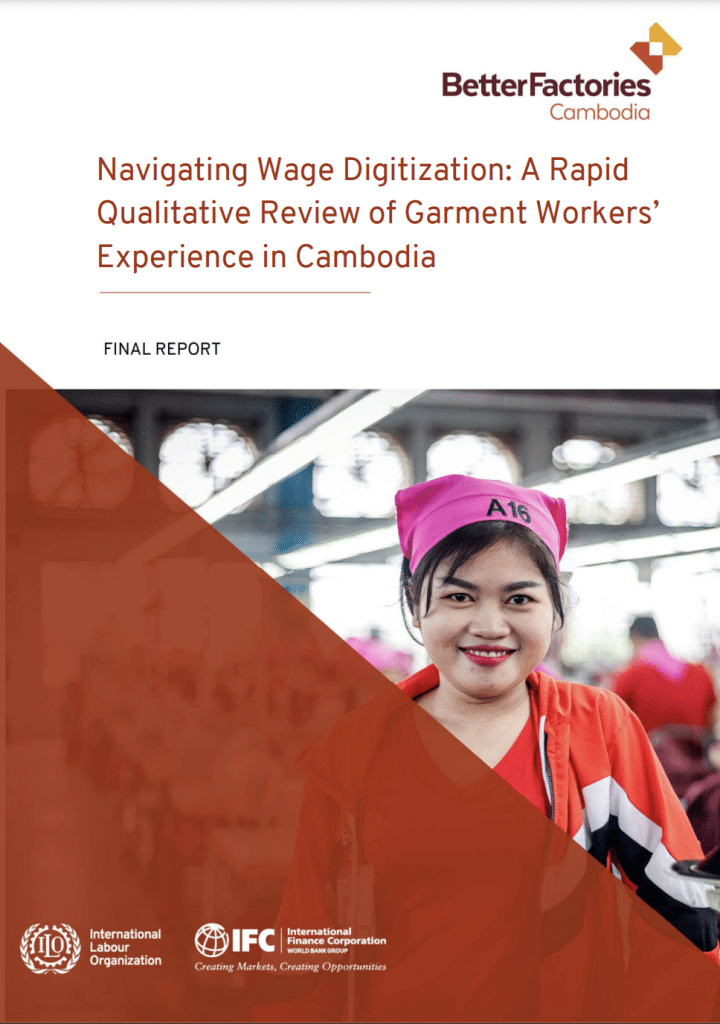Cambodia’s garment industry, the rapid shift from traditional cash-based wages to digital payment methods has gained remarkable momentum in recent years. Currently, over 50% of the 690 factories registered with the Better Factories Cambodia (BFC) Programme are using financial institutions to directly pay employees. While the benefits for factories are now evidenced in the literature; a significant gap remains in how this digital wage transition impacts women workers both in Cambodia’s garment sector and beyond.
This report aims to address this gap by delving into the experiences of women workers during this critical juncture. Based on desk review, semi-structured interviews, and focus group discussions, this rapid assessment explored women workers’ experiences and perceptions in their transition to digital wage payments. The findings indicate that the transitions were initially met with scepticism and hesitation. However, once workers become more comfortable with the systems, a notable shift towards acceptance and satisfaction emerged. It also confirmed that digital wages have included many workers in formal financial services.
Slightly different from other studies on this topic, this report found the benefits of digital wage payments rather ambiguous for garment workers while identifying new security risks, highlighting the absence of union participation in the transition, and underscoring the access challenges faced by certain vulnerable workers. Based on this new evidence, the report recommends areas of intervention for factories, workers’ organizations, financial service providers, and relevant stakeholders including the government and global brands to ensure that benefits for workers are realized.
